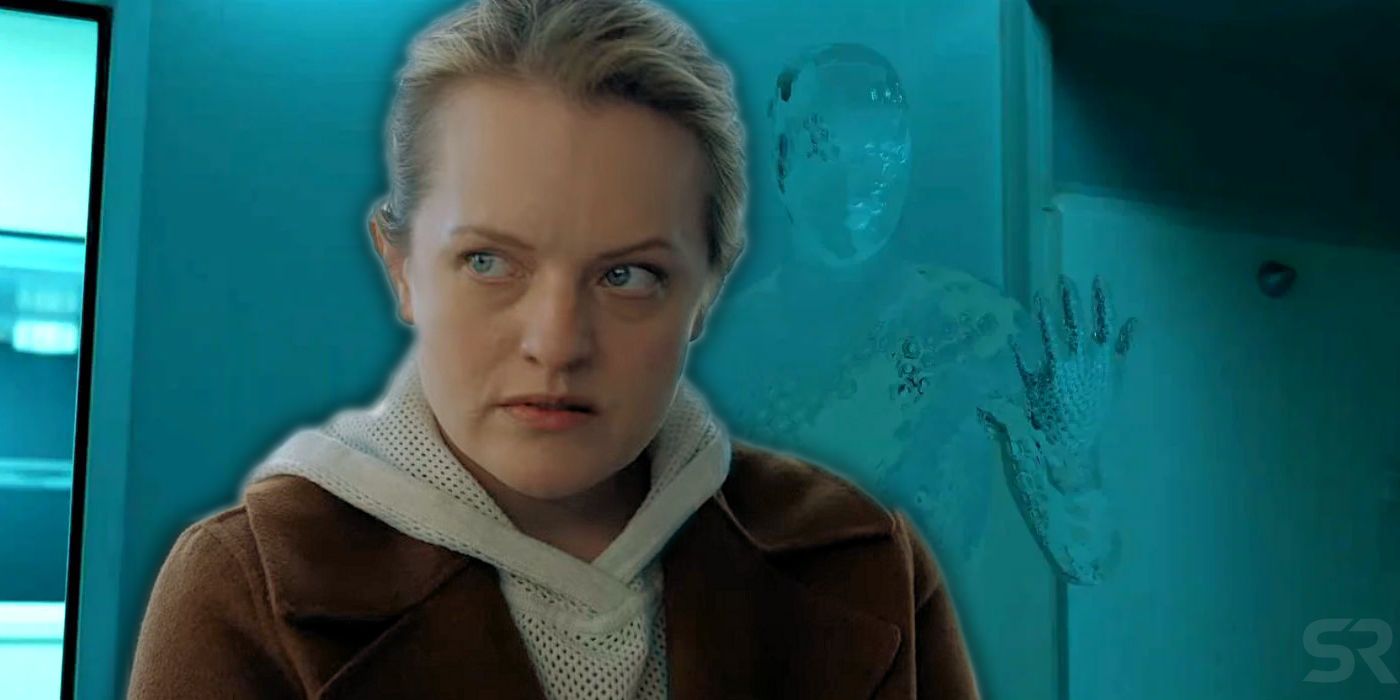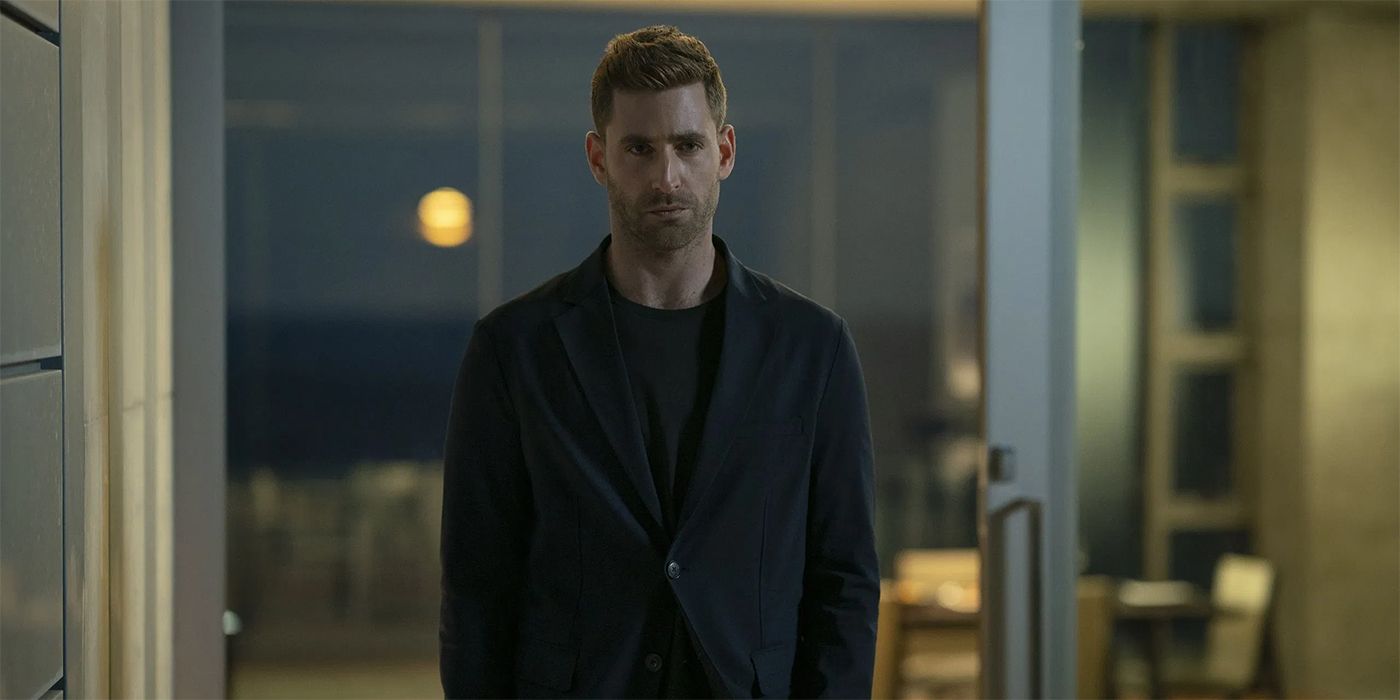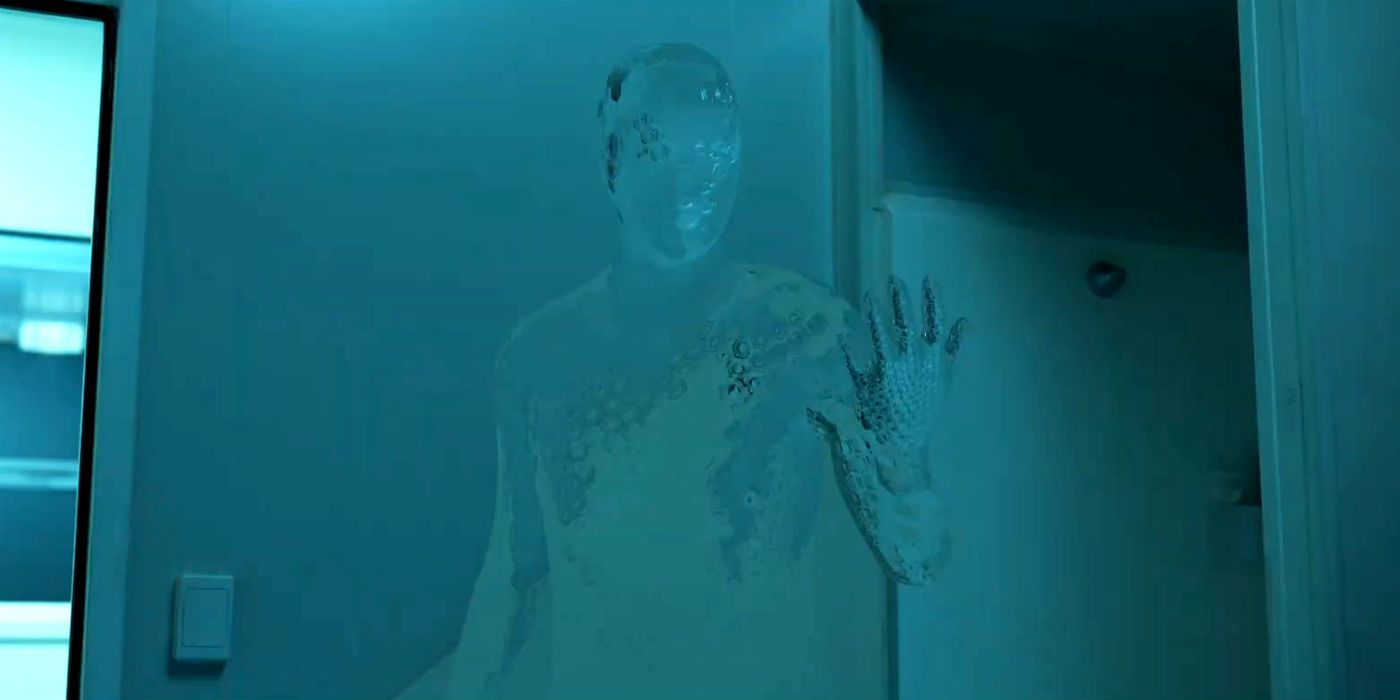The Invisible Man ending helps establish Blumhouse's remake as one of the year's scariest movies - and it's full of twists and turns that may confuse some viewers. The Invisible Man is one of the oldest ideas for a terrifying creature. The character was influential in literature when H.G. Wells first came up with the story, but the character gained a rich, new life once he joined Universal's stable of classical monsters in the early 20th century.
In spite of the evergreen quality of this monster, it hasn't been an easy journey giving The Invisible Man a modern face-lift. Many updates to the material have happened over the years, but they usually struggle in some regard. In fact, all of Universal's classic monsters have failed to connect in a modern sense, but The Invisible Man has some of the least cache of the lot.
Writer and director Leigh Whannell uses the basic template that's been established for the Invisible Man but takes it to a much more cerebral and emotional place, which only amplifies the horror. It's a story that manages to be frightening - in both realistic and supernatural ways. Whannell's The Invisible Man movie is by far the most successful take to come around in years and a lot of that has to do with the unexpected and ambitious places that the story goes.
Was Adrian Really The Invisible Man Or Not? The TWO Invisible Men Explained
One of The Invisible Man ending's biggest twists and revisions to the classic story is the fact that there's more than one invisible man. The Invisible Man throws a major wrench into things with the final act reveal that Adrian's brother, Tom, may have actually been responsible for the crimes in the film. As the 2020 Invisible Man remake entertains the idea that Tom might be the real villain, it simultaneously attempts to redeem Adrian in the process.
The Invisible Man keeps both the audience and Cecilia (Elisabeth Moss) guessing as to what the truth is here, and in doing so, it brilliantly extends the film’s theme on toxic relationships, trust, and doubt. With this, The Invisible Man doesn't just force Cecilia to wonder if there really is an invisible man but who that invisible man might be; there are multiple layers to it all. And to leave things on a more ambiguous note would be awfully wicked, but The Invisible Man eventually relents and implicates Adrian. It turns out that Adrian manipulated his brother into helping not only stage his suicide but also fake his kidnapping. Adrian is the guilty one, and it's made clear that he really is the murderous invisible man in the film, but Tom still holds culpability in the scenario.
What Was The Invisible Man's Plan?
Other takes on The Invisible Man have been transparent with regards to the motivations that drive the invisible man. However, the 2020 Invisible Man remake is a very different story and it crafts a rather intricate mystery around its general horror premise. Films of this nature often hinge on the strength and plausibility of the evil master plan that's put into motion, and Adrian's scheme actually makes sense and is a relatively satisfying and surprising reveal. What's really terrifying about all of this is that Adrian's actions when he's invisible really aren't that different from how he operates beforehand. He's not interested in using this incredible ability for scientific purposes or to better mankind, but it just amplifies his abusive, predatory behavior towards Cecilia.
When Adrian is together with Cecilia, he wants to break her spirit and make her dependent on him through emotional and physical abuse, not to mention toxic gaslighting. Even Adrian’s desire to trap her in a relationship with a child becomes more intense after his "death". Once Adrian becomes invisible, he takes these tactics to a whole new level as he tries to systematically make everyone, including Cecilia herself, believe she's crazy. Adrian slowly removes Cecilia’s support systems so she has no one else to turn to and needs to go back to him. Since he couldn't succeed in "life", the only way to make her truly his was to attempt this in "death". And to cap it all off, Adrian doesn't just stop with convincing Cecilia that she's having a mental breakdown; he also frames Cecilia for her sister's murder and tries to force her back into a family with him in the most evil way imaginable.
When Did Cecilia Become Pregnant?
Another one of the major turns and complications in the 2020 Invisible Man remake is that Cecilia becomes pregnant with Adrian's child, much to her horror. However, the film plays around with just when Cecilia becomes pregnant, with one alternative having a decidedly more disturbing implication behind it. The Invisible Man ending intentionally keeps events murky, but Adrian and Cecilia are in such a destructive place before his "death," that it seems much more likely that he forces himself on her afterwards as one of the many ways that he psychologically tortures her. Both of these options are dark ideas, and Tom implies that Adrian swapped out Cecilia’s birth control beforehand. However, the more vengeful of the two scenarios seems more within Adrian's capabilities. He's absolutely hell-bent on ruining Cecilia, but Whannell's film deserves credit for grimly entertaining both options. As a film that's more about psychological horror, The Invisible Man lets the viewers fill in the blanks themselves - and this drives that point home.
Cecilia Gets Away With Adrian's Murder At The End Of The Invisible Man
The Invisible Man ending pushes Cecilia to finally confront Adrian, her abuser, but through the guise of reconciliation. She cleverly takes advantage of Adrian's security cameras and invisibility suit to make it look like Adrian slit his own throat. Thanks to the scenario that Cecilia orchestrates, with James recording her conversation with Adrian, she's able to sell the illusion, finally end Adrian's horrors, and also get away with the invisibility suit. It initially seems like Cecilia’s plan is to try to trick Adrian to confess to his crimes, but her strategy is much more vindictive and permanent. It’s also the perfect way for Cecilia to show just how much she’s grown and that she’s much more clever than Adrian gives her credit for. She views this extreme revenge as the only way to truly be free - and she does it by playing by Adrian's rules, just to a different level.
What The Invisible Man's Ending Really Means
Part of what makes this adaptation of The Invisible Man narrative so engrossing is that it's just as much a story about the dangers of toxic relationships and emotional abuse as it is a horror film about supernatural murders. Yes, Cecilia has to overcome fantastical obstacles and defeat a literal monster, but what's perhaps even more important for her is that she learns how to be independent, respect herself, and avoid getting into a future relationship that preys upon her. It shows the damages of abusive behavior, how it can fester, and beget its own violence and revenge. This is the real message and triumph of The Invisible Man ending, and it's a beautiful lesson to build into this monster movie.






